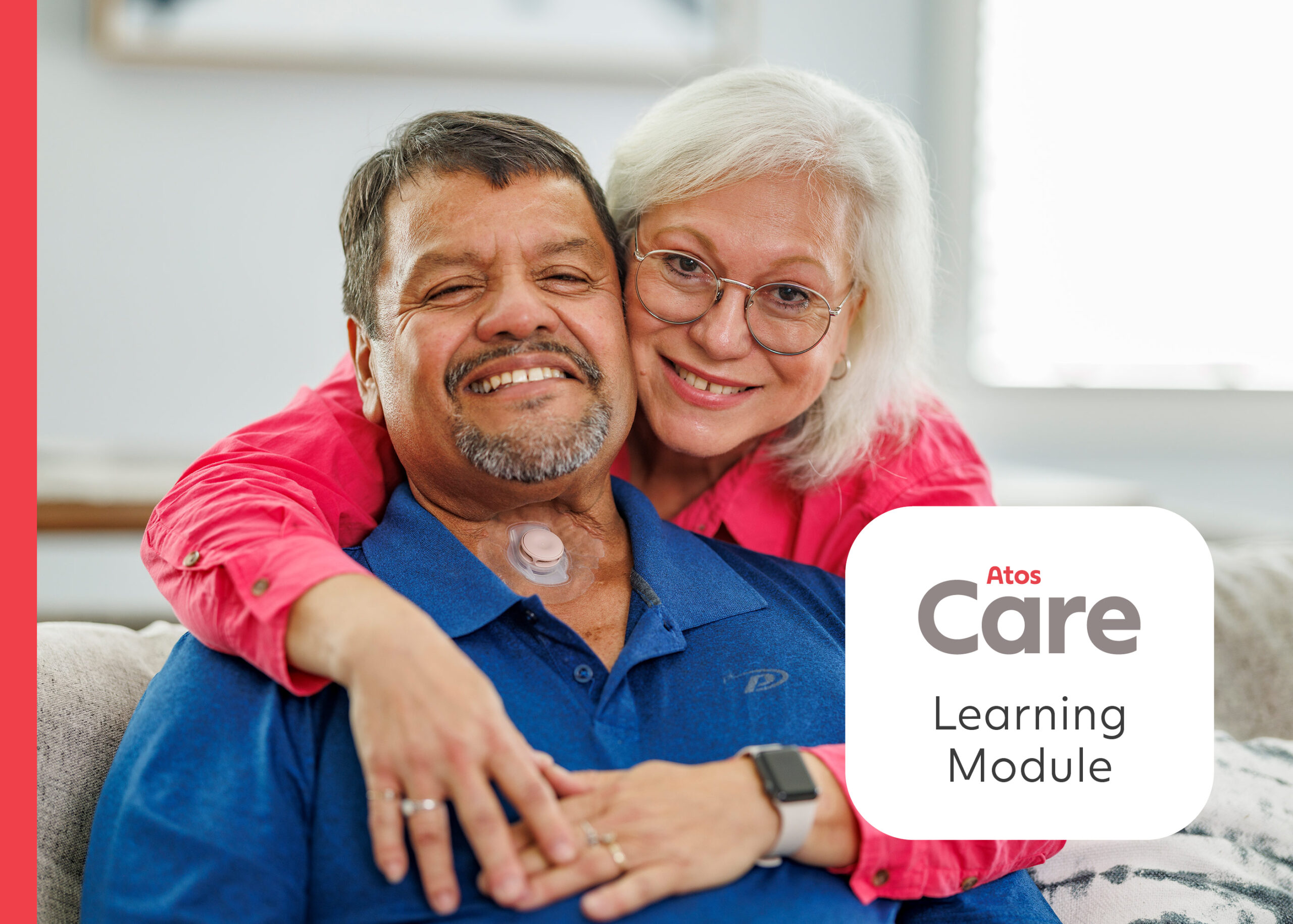Online Learning: Different Ways to Voice after a Laryngectomy
Join us for an informative online course on the various methods of voicing after a total laryngectomy. Presented by an experienced speech language therapist, this session explores techniques like the following:
- Esophageal speech
- Electrolarynx
- Voice prosthesis

This on-demand webinar offers valuable insights into managing life after a laryngectomy and methods to communicate effectively.
Course length: 10 minutes
Register today to learn about different voicing methods.
Register now to join
Please submit the form below to access the learning module. You will receive an email with direct access to the course.
*required fields
This site is protected by reCAPTCHA and the Google Privacy Policy and Terms of Service apply.
Enhancing Voicing: What You Will Learn in This Webinar
Chapter 1: What is a Total Laryngectomy and How Does It Affect Your Voice?
Understanding the impact of a total laryngectomy is crucial for anyone preparing for or recovering from the procedure. But what exactly does it entail, and how does it change your ability to speak? In this chapter, we explain how the removal of the larynx affects vocal cords and what this means for your natural voice.
Chapter 2: What Are Your Options for Voice Rehabilitation?
Once your larynx is removed, what are your options for voicing again? This chapter covers the three primary methods: esophageal speech, electrolarynx, and voice prosthesis. We will discuss how these alternatives can help you regain the ability to speak, providing a brief overview of how each works.
Chapter 3: How Can Esophageal Speech Help You Communicate?
Esophageal speech is the oldest method for voice rehabilitation, but how does it work? In this chapter, we explain the technique of pushing small amounts of air into the esophagus to create sound.
Chapter 4: Is an Electrolarynx the Right Choice for Immediate Communication?
This chapter explores the electrolarynx—a handheld electronic device that produces vibrations to create sound. We will discuss how to use it, the mechanical nature of the voice it produces, and why some patients prefer to use it as a backup or primary method of communication.
Chapter 5: Why is a Voice Prosthesis Considered the Best Voicing Method?
Voice prosthesis is often considered the gold standard for voice restoration post-laryngectomy. But why? In this chapter, we’ll take a closer look at how a small tube with a one-way valve can help you achieve a more natural and fluent voice.
Chapter 6: How Does Hands-Free Speech Enhance Your Daily Life?
In this chapter, we will explore the benefits of hands-free speech and how it can bring freedom and convenience.
Chapter 7: What Tools and Resources Are Available to Support Your Recovery?
After understanding your voicing options, what other tools and resources can help you on your journey? This chapter introduces the Atos MyLife app, a tool designed specifically for laryngectomy patients. We will also highlight other supportive products to aid in your rehabilitation.
Share
Save to my content
